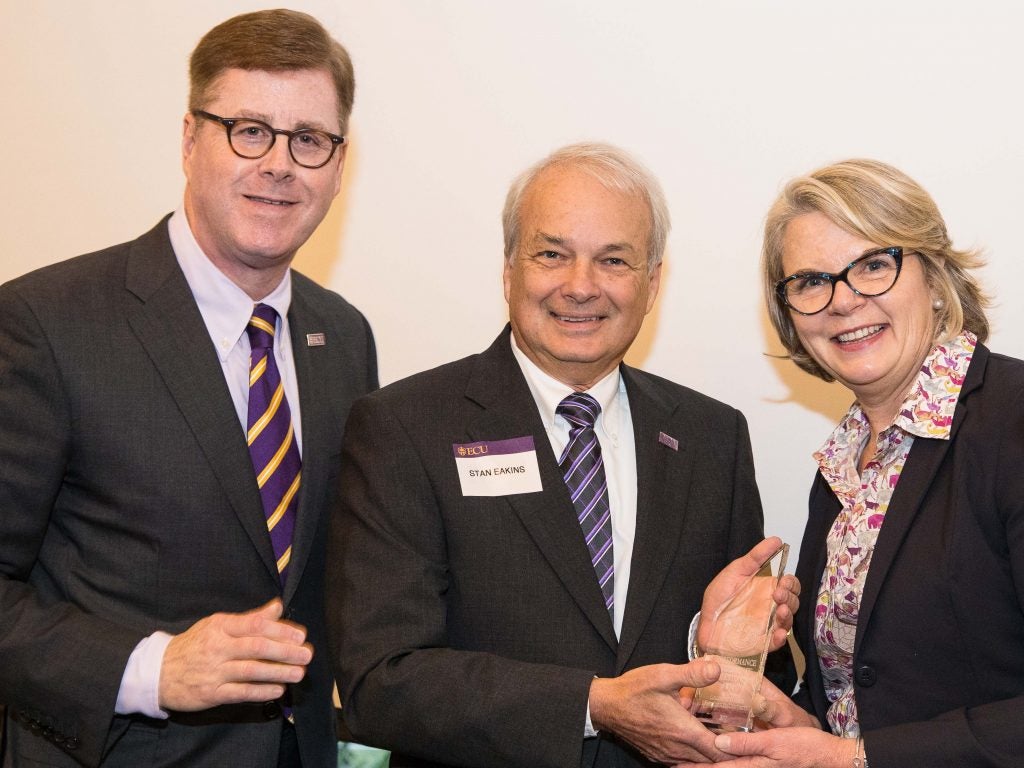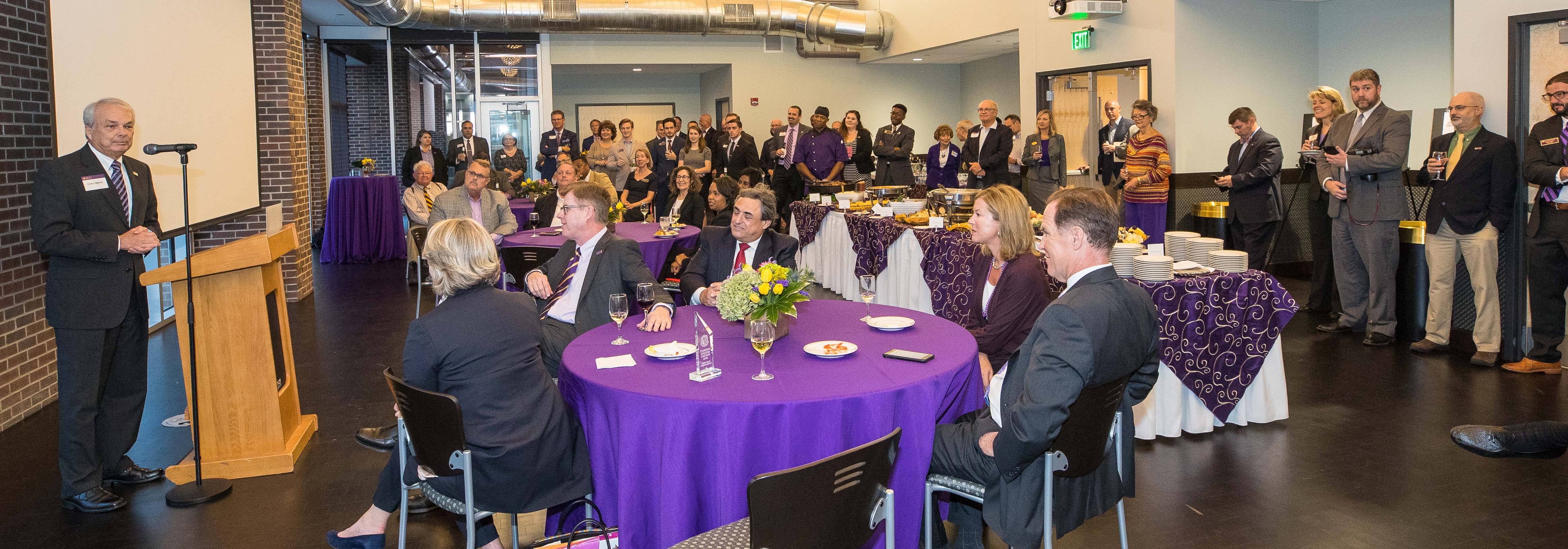RECOGNIZING EXCELLENCE
College of Business awarded for strategic planning, engaging faculty and staff
East Carolina University’s College of Business has earned the Milestone 2 Award from the North Carolina Awards for Excellence program.
UNC President Margaret Spellings presented the award to Dr. Stan Eakins, dean of the college, during a reception for UNC Board of Governors members as part of their campus tour on Oct. 12.
The award recognizes the college’s accomplishments in deploying a comprehensive framework that it calls the Performance Excellence Program (PEP). The program includes developing a highly focused strategic plan and resource alignment, a strong emphasis on student requirements, clearly defined processes with cross-functional collaboration, and total employee involvement with strong leadership commitment, Spellings said to the approximately 75 people at the event.

UNC System President Margaret Spellings presented the award to Dr. Stan Eakins, dean of the College, during a reception for UNC Board of Governors members, accompanied by Chancellor Cecil P. Staton, left.
This recognition marks the first time a college in the UNC System has received the Milestone 2 Award.
“This is yet another example of how ECU leads, shares a vision and paves the way for tomorrow,” said Spellings.
“This achievement highlights all the hard work and resources the college has devoted to its performance excellence journey, which started in 2014,” said Eakins. “While it is critical for the college to focus on its students’ success and its graduates’ ability to excel in the workplace, it is equally important to view the college as a wholly interdependent system that requires excellence from all its areas.”
PEP is based on the Baldrige excellence framework that includes methods to help the college meet its mission and achieve its vision. The first milestone was achieved in 2015 when the college developed a strategic planning balanced scorecard. This Baldrige-based method assisted the college in listing key-performance indicators that aligned short-term and long-term action plans to goals, identifying leading and lagging measures, and developing dynamic dashboards with real-time data.
“With the development of the scorecard, we identified the actions needed to help move our goals forward,” said Eakins.
Those actions included the establishment of the Miller School of Entrepreneurship, which will create innovative thinkers that engage in entrepreneurship. The Student Technology Center was built on the third floor of the Bate Building so students can have an active space and resources for experiential learning.
The college also developed problem-based learning classrooms that facilitate interactions between faculty and student. A new internship coordinator was added to the college’s career services department to help increase internship possibilities for students.
Another goal was to store and share best practices. In January 2016, the college created an online resource that provides access to all documents, workflows, and applications used by faculty and staff. The portal allowed the college to standardize its operating procedures for documentation, knowledge sharing and its key work processes and to serve as a one-stop portal for information.
According to Eakins, these actions increased overall operational effectiveness and efficiency.
“This past year, the college has completed more than 15 projects with various improved processes and enhancements,” he said.
The program’s next steps include a focus on workforce engagement, which is to energize faculty and staff to increase their participation. The college will continue to develop well-deployed, systematic processes with cycles of improvement and learning, innovation and robust knowledge sharing.
“This journey shows our commitment to being the best college of business for students, faculty, staff and the state of North Carolina,” said Eakins.
